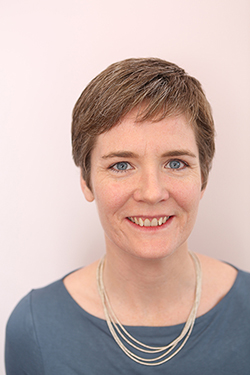
Water Words
Posted on: September 2016Sarah Bell, University College London
 |
Sarah Bell, University College London |
This is the blog of the Water Efficiency Network. We write about water efficiency. Why ‘efficiency’? Why not water conservation, water saving or water use? Perhaps these are just synonyms, and we all know what we are talking about. But the words we choose to talk about the world matter. Words shape our thinking. The language of efficiency allows us to talk about some things, and not others.
For millions of people in the world water ‘sufficiency’ is a major challenge. Without sufficient water, around 100L per person per day, public health is at risk and livelihoods compromised. In the UK most people have sufficient water. The problem that ‘water efficiency’ addresses is how to help people use less water. In places with growing population and limited water resources we need to figure out how to make the water we’ve got go around more people.
So why do we use the word ‘efficiency’ to describe this task?
Efficiency is the language of engineering and economics. People with spreadsheets. And money. When we talk about water efficiency we can more easily start conversations with powerful people who run water companies, engineering firms, regulators and governments. Efficiency is something engineers, managers and policy makers understand. Efficiency is good.
Or is it? Perhaps efficiency has its downsides. Efficiency can lead to vulnerability during times of crisis. A highly efficient system may not have enough ‘slack’ to be able to adapt to resources shortages or emergencies. If people are only use 100L per person per day to start with, how much water will they be able to save in a drought? Will they be able to adapt to emergency conditions?
The next question is efficient at what? Efficient for whom? We all have the experience of navigating call centre telephone menus that are designed for someone else’s efficiency but waste our time and leave us baffled. In water conservation we know that a cheap washing machine might be economically efficient for the person who owns it but wasteful of our shared water resources. Water recycling systems might save water but use more energy. To engineers and economists, this becomes a tantalising ‘multi-objective optimisation problem’. What it means is that there is no such thing as a perfectly efficient solution. There are always trade-offs and limits.
‘Water efficiency’ sometimes seems to offer the perfect answer, the win-win solution. With the right showerheads and toilet cisterns we can save water without anyone even noticing, and we can save energy and money. There are undoubtedly important no-lose options for reducing water consumption, and water efficient devices have an important role to play. Water efficiency in a technical and economic sense is necessary, but not sufficient to solve this problem of how to make our limited water resources go further.
Efficiency may not be the best way to think about how to help people to use less water in their everyday lives. Busy people in large households might need to be efficient in taking a shower, to get in and out as quickly as possible. For others the shower is a place to escape from the hectic demands of work and family. A shower may be a luxury, a rare moment of sanity and solitude. Washing laundry may be a chore we want to get through as efficiently as possible, or it can be part of a pattern of caring for ourselves and our family. Luxury and care at home seem to be the opposite of the cold, hard efficiency of economics and engineering.
Luxury and care do not necessarily require waste, but if we start from the point of view of ‘efficiency’ we might miss important opportunities to start new conversations about how to change the ways we live with water. In taking on the language of economists and engineers we might lose sight of the purpose of what we are trying to achieve. Focussing on ‘efficiency’ might drive us towards particular options and away from others.
If what we want is to make sure that we have sufficient water to go around, now and in the future, then we need to be able to talk about lots of different possibilities for change. Water efficiency is something, but it is not everything. Water saving, water conservation, taking care with water and being water wise open up different ways of talking and thinking about water in our homes and communities. We need many different conversations and different voices to help figure out how to make the water we have go further, now and in the future.



